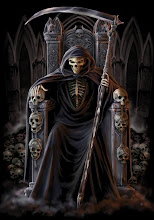We would have seen people who are extremely devoted to actors or actress, especially in south India. This is a type of disorder. Just read on.
Celebrity Worship Syndrome is an obsessive-addictive disorder in which a person becomes overly involved with the details of a celebrity's personal life.
Psychologists have indicated that though many people obsess over glamorous film, television, sport and pop stars, others have unlikely icons such as politicians or authors. The only common factor between them is that they are all figures in the public eye (i.e., celebrities). The term Celebrity Worship Syndrome is in fact a misnomer.
Psychologists in the U.S.A. and UK. created a celebrity worship scale to rate the problems.samples have suggested there are 3 different aspects to celebrity worship
Entertainment-social: This dimension comprises attitudes that fans are attracted to a favorite celebrity because of their perceived ability to entertain and become a social focus such as “I love to talk with others who admire my favorite celebrity” and “I like watching and hearing about my favorite celebrity when I am with a large group of people”.
Intense-personal: The intense-personal aspect of celebrity worship reflects intensive and compulsive feelings about the celebrity, akin to the obsessional tendencies of fans often referred to in the literature; for example “I share with my favorite celebrity a special bond that cannot be described in words” and “When something bad happens to my favorite celebrity I feel like it happened to me’”.
Borderline-pathological: This dimension is typified by uncontrollable behaviors and fantasies regarding scenarios involving their celebrities, such as “I have frequent thoughts about my favorite celebrity, even when I don’t want to” and “my favorite celebrity would immediately come to my rescue if I needed help”.
Evidence indicates that poor mental health is correlated with celebrity worship. There is evidence to suggest that the intense-personal celebrity worship dimension was related to higher levels of depression and anxiety. Higher levels of stress, negative affect, and reports of illness also have been attributed to it. Both these studies showed no evidence for a significant relationship between either the entertainment-social or the borderline-pathological dimensions of celebrity worship and mental health.
Among three separate U.K. samples (adolescents, students and older adults) individuals selected a celebrity of their own sex whose body/figure they liked and admired, and then completed the Celebrity Attitude Scale along with two measures of body image. Significant relationships were found between attitudes toward celebrities and body image among female adolescents only. The findings suggested that, in female adolescence, there is an interaction between intense-personal celebrity worship and body image between the ages of 14 and 16 years, and some tentative evidence is found to suggest that this relationship disappears at the onset of adulthood, 17 to 20 years.
Though low levels of celebrity worship (entertainment-social) are not associated with any of the clinical measures, medium levels of celebrity worship (intense-personal) are related to fantasy proneness (around 10% of the shared variance), while high levels of celebrity worship (borderline-pathological) share a greater association with fantasy proneness (around 14% of the shared variance) and dissociation (around 3% of the shared variance, though the effect size of this is small and most probably due to the large sample size). This finding suggests that as celebrity worship becomes more intense, and the individual perceives having a relationship with the celebrity, the more the individual is prone to fantasies.
hmmm...Are you trying to recall something or someone?
Source: Wikipedia
Mohan Rao.
Better to be deprived of food for three days than tea for one
- Zen Proverb.
Subscribe to:
Post Comments (Atom)

No comments:
Post a Comment